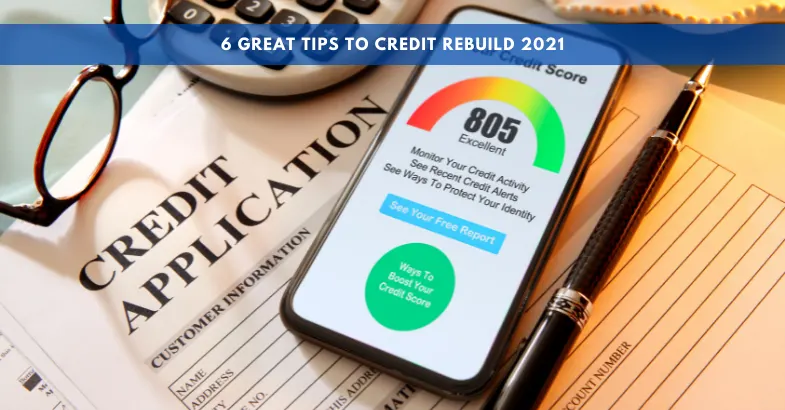Are you stuck on having a bad credit score and still struggling to fix it? No matter how bad your credit score is, there are always several solutions to improve your negative credit data.
Having a good credit score indicates that you are a responsible payer because you know how to manage your credit well. It is much easier for people who have a higher credit score to get approved for any loan such as auto loan, personal loan, housing loan, and others.
A high credit score unquestionably impacts your personal finance and provides lenders an indication of how good you are in repayments.
We are presenting 6 tips in today’s blog to aid in patching up your broken credit status so that you can breeze through your mortgage plans with ease. Following these guidelines helps you in fixing your credit problems. Read on…
The Necessity of Credit Repair
Fixing your credit report is a must because this will help you on your way to financial freedom.
A low credit score means higher interest rates and that means you will be charged more on your credit account. Bad credit can leave you in a financial crisis because businesses are depending on your credit score before they make decisions.
Your credit report serves as the latter’s means of vouching for your value as an investor and as a good creditor to their firm.
The following are wise tips from successful people who managed to wriggle themselves out from a bad credit score:
- Make Your Payments on Time
This is always the easiest, best, and most practical way to improve and repair your credit score. Paying bills on time helps you increase your credit score. This also tells your lenders that you are responsible for your finances and are trustworthy.
Having a good credit history informs lenders and/or bankers that you are careful with your money and are capable of paying bills promptly.
This will make it easier for you to get approved with any loan applications and ultimately lead you to repair your own credit score to further boost your financial worth.
- Keep Credit Utilization Low
Credit utilization is the ratio of your outstanding balances against your credit card limit. You should only use a maximum of 30 percent of your credit limit to relieve yourself from credit fatigue.
If your CU ratio is too high then this will adversely affect your credit score because this is one of the major factors relied upon in marking your credit score (i.e., if your credit limit is $1,000 then you should only be spending below your maximum or at a maximum of $300 on your credit card).
- Request for a Credit Report And Dispute Any Errors Found
Get a free report from credit bureaus. You are entitled to pull a copy of your credit report once a year. Review them and check all information that would affect your credit score such as payment history, current running balances, past-due payments, and so on.
If you discover any errors then contact your credit card provider and file a format dispute regarding these.
You have to exert every effort to correct any erroneous posts to your credit report at once if you are targeting a repair credit score to update your financial outlook and make you a risk-free borrower.
- Set Calendar Reminders
Many of us often forget or sometimes take for granted our incurring bills that lead to credit card penalties and low credit scores. It is better to take note of what bills are due for payment, set calendar reminders, or assign due date alerts on your mobile device for proper management of your outstanding dues.
It does not matter how long to repair credit integrity as long as you stick to your scheduled payment or amortization plans. This will help you in extinguishing your outstanding dues properly and avoid paying stiff penalties.
- Apply for (Additional) Credit Card(s) Only When Needed
Please be mindful that applying for TOO MANY credit cards will affect your credit profile and score especially if you are undisciplined in using them.
Apply for the right type of credit card only when you badly need it and when urgency dictates that it is practical to do so.
- Do Not Close Unused Credit Card(s)
It is best to keep your unused credit card(s) especially if some credit card companies do not charge you an annual fee. Closing your account will not hurt your credit score; however, your credit relevance rating could decrease and make you appear “weak” in the financial aspect.
Final Thoughts
Save money, spend frugally, and fix your credit score responsibility to gain financial freedom. Overall, it could take you about three to six months to repair your credit black eye.
However, in the end, it is only through you that your credit shortcomings are remedied. Just follow our six proven tips enumerated above and you are good to be considered a reputable credit-funded person.
We are your specialists in mortgaging and credit score restructuring for 9+ years running. Our office is located in Canada and we offer financial advice as well as mortgage services to many of our clients.
Please feel free to phone +1 647-373-9651 or email us at creditrepair@oneteamservesyou.com to learn more.


